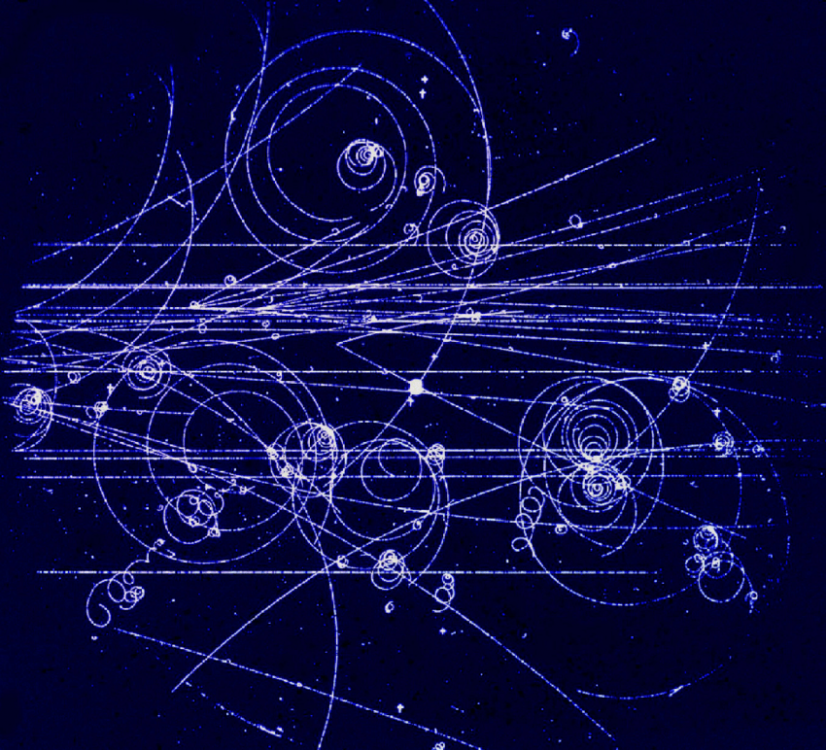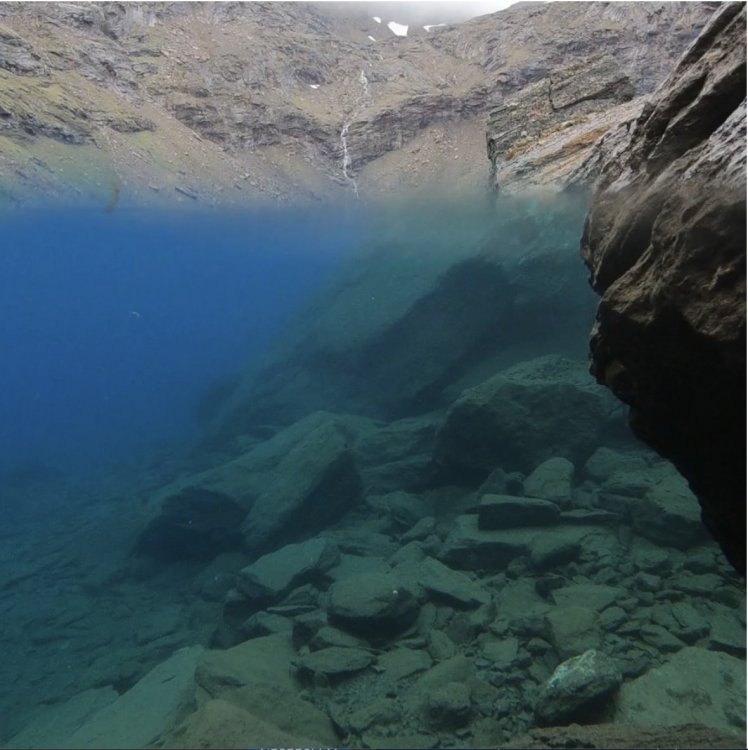Leaderboard
Popular Content
Showing content with the highest reputation on 09/11/21 in all areas
-
People are telling you how scientists view what they are doing. You are telling them "No! you are NOT viewing it that way! You are viewing it a different way." It's fine that you can't get comfortable with their view, but quit telling people what they think.2 points
-
I think there are questions about whether there was interference from non-experts.1 point
-
That means that since I am not an expert I should go away. Thanks pal. I'm not trying to argue I'm right. I'm asking how do they know what they say they know? They say "there can be no center or edge" to what we see as the big bang. I still haven't seen a coherent answer. Nobody is sure about anything beyond the observable universe. I'm asking for your best guess. I'm no expert, so I'm asking. Can you answer my questions? Einstein said something like "a good scientist should be able to explain their work to a child" basically. At least lead the child in the right direction. I have not seen the direction yet.1 point
-
Have you considered that you're, maybe, over-thinking the problem?1 point
-
Scientists in laboratories can create a single photon at a time and detect a single photon at a time. Scientists in laboratories can eject and accelerate a single electron at a time and detect a single electron at a time. Scientists in laboratories can eject and accelerate a single quantum particle at a time and detect a single quantum particle at a time. Want to see them? Build Cloud Chamber: Here we have a single quantum particle, of various types (e.g. electron, proton, alpha, muon, pion, kaon), accelerated to near the speed of light, colliding and decelerating with atoms in the medium... or a simulation of it, if you are a "brain in a vat". What does it mean to "see something"? The scientific version: atoms in your retina are excited by photons and create electrical impulses. https://en.wikipedia.org/wiki/Retina "In the photoreceptors, exposure to light hyperpolarizes the membrane in a series of graded shifts. The outer cell segment contains a photopigment. Inside the cell the normal levels of cyclic guanosine monophosphate (cGMP) keep the Na+ channel open, and thus in the resting state the cell is depolarised. The photon causes the retinal bound to the receptor protein to isomerise to trans-retinal. This causes the receptor to activate multiple G-proteins. This in turn causes the Ga-subunit of the protein to activate a phosphodiesterase (PDE6), which degrades cGMP, resulting in the closing of Na+ cyclic nucleotide-gated ion channels (CNGs). Thus the cell is hyperpolarised. The amount of neurotransmitter released is reduced in bright light and increases as light levels fall. The actual photopigment is bleached away in bright light and only replaced as a chemical process, so in a transition from bright light to darkness the eye can take up to thirty minutes to reach full sensitivity." Do you see electric field, magnetic field, gravitational field? No. You see just EFFECTS of these fields on surrounding environment i.e. how other quantum or macroscopic objects change path and react to them. If you see something, does that mean it exists? There are people who claim to see something or someone, hallucinating, after or without abusing psychedelics or drugs. In the middle of this photograph, we see an arrow < that marks two particles coming from nowhere. How is this possible? An electric neutral quantum particle leaves no trace, but its decay produced two new, extremely highly accelerated charged particles. Again, we only see the effect and do not see the source. Therefore, the gap is filled by the theory (undetectable neutral quantum particle).1 point
-
The decision as to whether or not to vaccinate secondary school age children seems to be quite finely balanced, if one considers only the risk to each individual child. What may tilt the balance in favour of vaccinating them is the reduction it produces in the level of infection circulating in the population as a whole. UK experience is that levels of infection have shot up since the school term started. Throughout this epidemic it has been remarkably hard to get certain segments of US society to recognise that the virus countermeasures are not applied just for the good of the individual, but also for the good of other people who they would otherwise infect. Given that vaccination cannot prevent infection completely, suppressing it by vaccinating this age group as well seems to be a sensible strategy.1 point
-
I recently visited what is claimed to be the clearest* lake in the country and this picture was unexpected. I tried to film the clear water and the resulting film was not anything worth sharing, but this single frame from the moment when the camera lens is half submerged turned out pretty well. *) I have not found any conclusive official measurements, maybe it is tricky to perform standardised measurement as the bottom is visible from the surface. https://en.wikipedia.org/wiki/Rissajaure1 point
-
What knowledge I have of WW2 is simply the number of isolated incidents that in hindsight changed the course of the war...the invention of radar, code breaking, Hitler invading the Soviet......If these things had not have taken place, the result/s may have been different.1 point
-
This is Eddington and his celebrated "two tables" again. Perhaps you're familiar with it? Do I think the table/cannonball is real? Yes. Don't you? A description can also be given in terms of what's going on at the atomic or subatomic level: Two descriptions of one thing, if you like. I believe the table is real enough (this is the commonsense realism alluded to in the OP). Given my own (scientific) antirealist proclivities, however, I'd be a bit hesitant of believing the behind-the-scenes description, fascinating though it may be. You might say I remain agnostic. How about yourself? I'd say obviously so, at least the observable part thereof. The description/statement (of the observable trajectory) corresponds with the facts thus, on the standard understanding of truth (as TheVat has expatiated on), the description is true. As for the behind-the-scenes bit . . . see above.1 point
-
Ahh… of course. Thanks. I sort of stopped watching Lucy pull the football away from this particular Charlie Brown. First, Trump was to retake office on Inauguration Day, January 20. Then that came and went and he was to retake office on March 4. Then that came and went and he was to retake office on August 13. Now that’s come and gone so the date has slipped to September 13. PT Barnum was right. There’s a sucker born every minute.1 point
-
" is nothing to do with the autopilot.", hahahhahahha-1 points
-
Er, I've offered direct quotes from Nobel prize-winning scientists. They are telling us what they think.-1 points
-
First of all, look at what you're doing here: just take the first sentence. Are you speaking literally with all this talk of photons? It looks an awful lot to me like a (purported) statement of fact. And if that's the case, don't look now but you're describing reality. Science could be dead wrong about photons, of course, nonetheless you are at least trying to describe reality. Or are we to understand this talk of photons as mere façon de parler? How do we know the Sun really exists? Because we can see it! It may indeed turn out that current theories of the Sun (nuclear fusion, etc.) are wrong, that we are misdescribing the Sun, after all many past theories are now considered false. Note: to misdescribe is already to presuppose an attempt to describe. To misdescribe it, however, is not to deny its existence. To misdescribe Frank Sinatra, say, as having six legs, perhaps, does nothing to impugn his existence. For the Sun to be unreal it would have to be some kind of illusion, not really there. Let's suppose--worst case scenario--that the stars and distant galaxies turn out to be (mind independently) unreal and we're all brains in vats, what do you think would be the appropriate thing to say?: 1. Pfft! Who cares! We never thought they were real anyway, or 2. Whoops! We thought they were real--we were trying to describe real things (i.e. describe reality)-- but we were wrong. This is simply untrue, I'm afraid. There are scientists, the vast majority I suspect (physics being the exception where realism does appear to be a minority position), who take themselves to be describing, or at least trying to, describe reality, trying to get at the truth. Even in physics . . . All this [i.e. Kuhn's ideas] is wormwood to scientists like myself, who think the task of science is to bring us closer and closer to objective truth." -- Steven Weinberg (from "Facing Up", essay 17, "The Non-Revolution of Thomas Kuhn" "Although natural science is intellectually hegemonic, in the sense that we have a clear idea of what it means for a theory to be true or false, its operations are not socially hegemonic -- authority counts for very little" -- Steven Weinberg. See "The Science Wars", p220 "Rigidity means here that the theory [GR] is either true or false, but not modifiable" - Einstein, essay "On the Generalized Theory of Gravitation" "Physical concepts are free creations of the human mind, and are not, however they may seem, uniquely determined by the external world. In our endeavor to understand reality we are somewhat like a man trying to understand the mechanism of a closed watch. He sees the face and the moving hands, even hears its ticking, but he has no way to open the case. If he is ingenious he may form some picture of a mechanism which could be responsible for all of the things he observes, but he may never be quite sure his picture is the only one which could explain his observations. He will never be able to compare his picture with the real mechanism and he cannot even imagine the possibility or the meaning of such a comparison." - Albert Einstein You may also wish to ponder this: Is it, or is it not the case, that scientists routinely speak of a theory as having been falsified? And how are we to understand the term falsified if not as "shown to be not true"? The scientific realist commonly appeals to "Inference to the Best Explanation" (IBE) as warrant for her truth claims. It goes something like this: From a set of candidate explanations we are licenced to infer to the truth, or approximate truth, of the best among them Now, we have to be very careful here with talk of "most likely"; there is a risk of circularity. The inference is supposed to be: "the best explanation is the one most likely to be true" If "best" is understood to mean "most likely to be true" then we end up with the unhelpful circularity "The explanation most likely to be true is the one most likely to be true" "Best (explanation)" therefore, to avoid the circularity, must make no reference to likeliness. The locus classicus on all this must be Peter Lipton's "Inference to the Best Explanation". He suggests a criterion of loveliness (as opposed to likeliness) to identify the best explanation. I can't remember the details. Cough up the dough and find out for yourself. He might not be lying, just senile or delusional LOL. Whatever he's doing, though, he's not a poached egg. If I show you a fella claiming to be Napoleon (the little Corsican), is he Napoleon?-2 points
-
Are you saying the natural world is unreal? Because that's what you just typed in black and white. What do you take the natural world for then? A hologram or a mirage or something? I'm not being sarcastic or disrespectful. It's precisely what your comment implies.-2 points
-
Biden said he want to find out does Taliban really want peace or not just before Taliban attacked the Afghanistan national army. LMAO, hahah They also said they want to stay in Afghanistan after 31/08/2021, hahahhahah, You made the deal to leave Afghanistan on 31/08/2021 it is like they say they want to stay in a hotel for one more day without pay. They also ask those Asian countries to open their board. Uzbekistan said it will not accept any refugee, they must be too polite, so they do not tell the American and EU politicians to Shut-UFU. + Korean, China, Japan never accept one single refugee.-2 points













